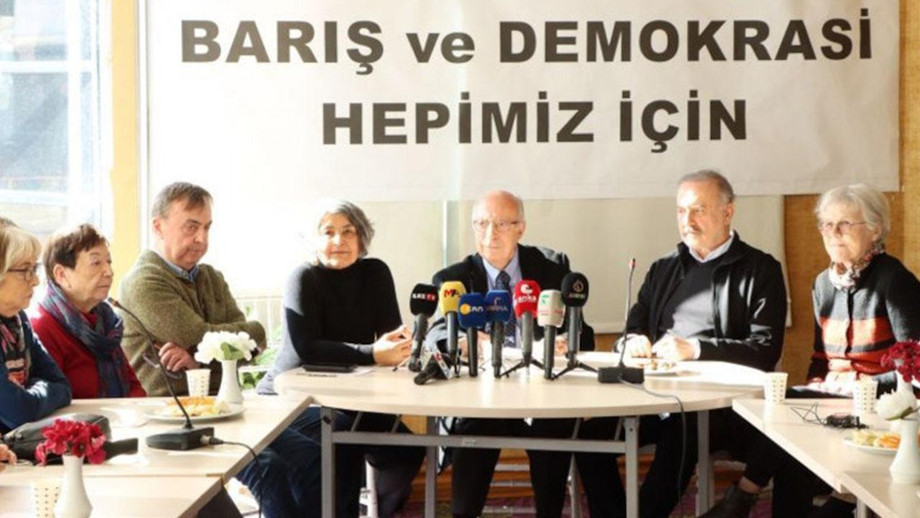A statement headed “Peace and Democracy for All” was released by 39 intellectuals and writers in Istanbul on Saturday, calling for urgent steps for dialogue and democratic reform to resolve the Kurdish issue and secure lasting peace.
A group of 39 intellectuals and writers released a statement entitled “Peace and Democracy for All” at a press conference held in Istanbul’s Taksim district on Saturday. The statement highlights the urgent need for social peace and democratic reform in Turkey, especially in light of the ongoing Kurdish issue and regional conflicts.
The press conference, held at Taksim’s Hill Hotel, was chaired by Rıza Türmen, a former judge at the European Court of Human Rights and a former Republican People’s Party (CHP) MP. Reading out the statement, Türmen stressed that peace means not only the cessation of armed conflict, but also the need to address its root causes. He criticised the government’s increasing reliance on violence to solve problems, including the appointment of trustees to replace elected mayors, the suppression of peaceful protests and attempts to resolve the Kurdish issue by force.
Other speakers, including writers Necmiye Alpay, Murathan Mungan and Ayşegül Devecioğlu, echoed calls for peace and democracy. Alpay stressed the need to prioritise human rights and inclusivity in any potential solution, while Mungan stressed the importance of approaching the Kurdish issue from an internationalist perspective, arguing that outdated approaches no longer work and that comprehensive programmes are needed to address the social and economic dimensions of the issue. Devecioğlu criticised the contradictory actions of the government, saying: “The government talks about peace while appointing trustees and carrying out [security] operations. It is unacceptable for the advocates of peace and democracy to remain passive. I call on everyone to support this cause.”
The declaration emphasised that peace is a social necessity, not just a political agenda. It proposed a framework for resolving the Kurdish question through dialogue, human rights and democratic reforms. “The Kurdish question can only be solved within the framework of democracy and human rights,” the statement said, adding that participatory democracy and decentralisation are essential for equality and coexistence.
The statement also touched on developments in Syria, highlighting the interconnectedness of regional conflicts. It noted that the Kurdish question could not be resolved within Turkey’s borders alone and called for a peaceful regional policy that would benefit all the peoples of the region.
The signatories noted that the right to live in peace is a fundamental human right recognised under international law. Referring to historical milestones such as the Nuremberg trials and United Nations resolutions, they highlighted the global consensus that peace is a sacred right for all individuals and communities. The statement cited the 1984 UN General Assembly Declaration affirming the right to live in peace and the 2010 Santiago de Compostela Congress, which reaffirmed the responsibility of states to protect this right and to ensure sustainable and lasting peace.
The signatories also addressed wider socio-economic challenges, advocating structural reforms to fight poverty, unemployment and inequality. The declaration called for the building of a country free from violence, corruption and social injustice, stressing that “peace requires the creation of the foundations of a just, free and democratic society”.
The intellectuals and writers concluded with an urgent call for a peace process and an end to armed conflict. They argued that sustainable peace depends on social participation and the promotion of a culture of peace. “Peace is not just the absence of war; it is a social value that requires collective effort and support,” they said.


